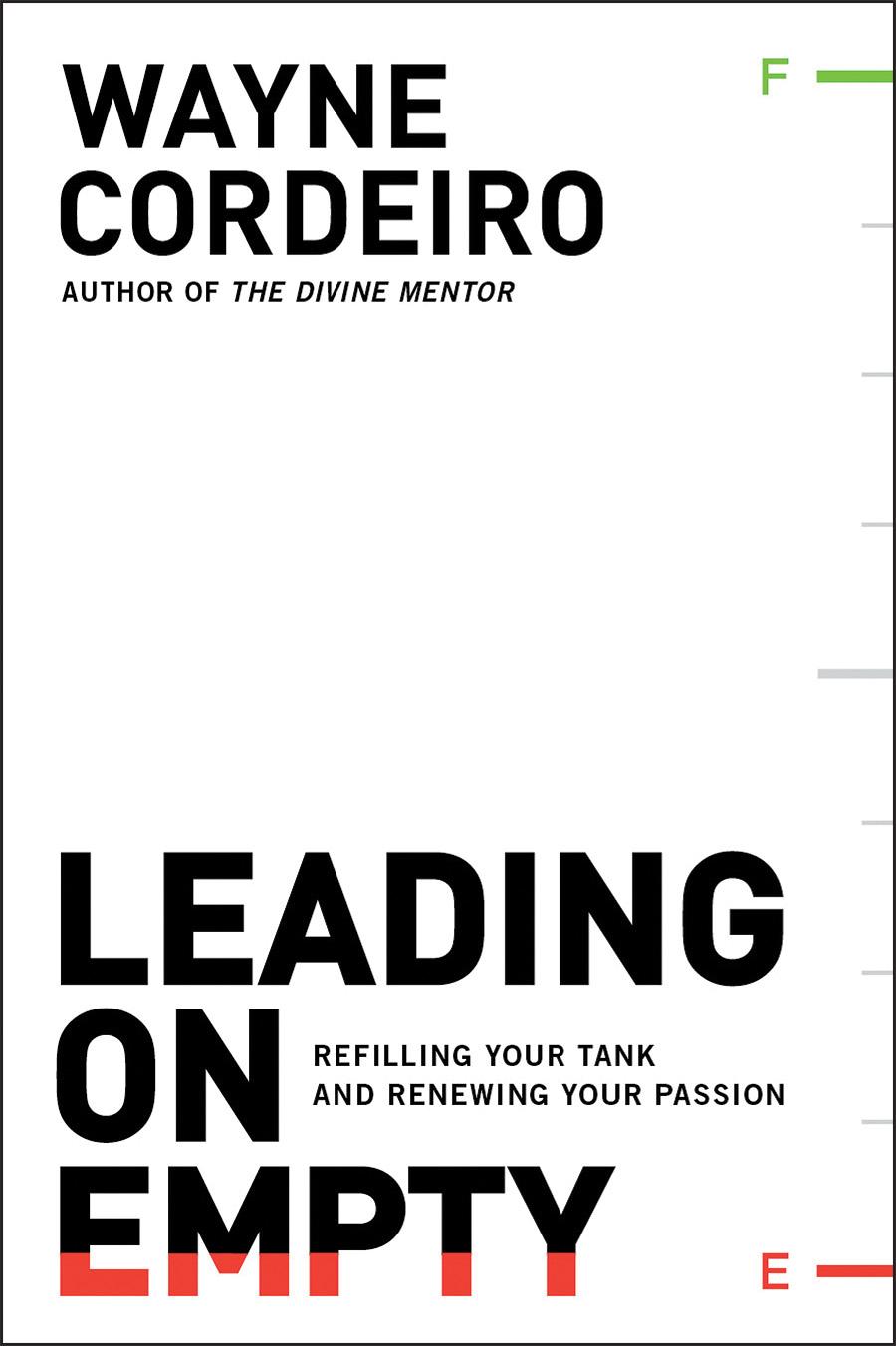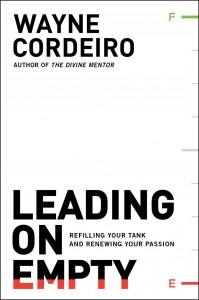Book Review: Leading on Empty

 I finished reading through the book Leading on Empty last night. It’s been on my reading list for a while, and I’m glad I finally read through it. Wayne Cordeiro, Pastor of New Hope Christian Fellowship in Hawaii, wrote this book based on his personal journey through burnout and depression while leading a growing church. While I’m not to the point Cordeiro reached, I do see warning signs in my life that I need to address.
I finished reading through the book Leading on Empty last night. It’s been on my reading list for a while, and I’m glad I finally read through it. Wayne Cordeiro, Pastor of New Hope Christian Fellowship in Hawaii, wrote this book based on his personal journey through burnout and depression while leading a growing church. While I’m not to the point Cordeiro reached, I do see warning signs in my life that I need to address.
Our church has been blessed with growth, but that also brings leadership challenges. For our church size, we are understaffed, and that means there is always more to do than time to do it. The last year has been tough for me, both physically and emotionally. Quite simply, the work of a Pastor is never done, and you are never truly off. Cordeiro shares some statistics that are frightening.
In H. B. London Jr.’s great work Pastors at Greater Risk, we find these startling statistics:
- 80 percent believe that pastoral ministry affects their families negatively.
- 33 percent say that being in ministry is an outright hazard to their family.
- 75 percent report they’ve had a significant stress-related crisis at least once in their ministry.
- 50 percent feel unable to meet the needs of the job.
- 90 percent feel they’re inadequately trained to cope with ministry demands.
- 25 percent of pastors’ wives see their husband’s work schedule as a source of conflict.
- Those in ministry are equally likely to have their marriage end in divorce as general church members.
- The clergy has the second highest divorce rate among all professions.
- 80 percent of pastors say they have insufficient time with their spouse.
- 56 percent of pastors’ wives say that they have no close friends.
- 45 percent of pastors’ wives say the greatest danger to them and their family is physical, emotional, mental, and spiritual burnout.
- 52 percent of pastors say they and their spouses believe that being in pastoral ministry is hazardous to their family’s well-being and health.
- 45.5 percent of pastors say that they’ve experienced depression or burnout to the extent that they needed to take a leave of absence from ministry.
- 70 percent do not have someone they consider a close friend.
This book has really reaffirmed my commitment to and my need to honor the Sabbath. I am also planning an extended time of rest later in the year for a sabbatical. I started at Cornerstone almost seven years ago, and it has been non-stop ever since. This book shares several practical principles to help you stay connected to God so that you can lead with a full tank. I plan on implementing a personal retreat day each month to help me stay focused on my calling. This is a book I highly recommend to other pastors and leaders.
Here are a few quotes from the book
- Congregants expect pastors to preach the finest sermons in town, and when one weekend’s message is completed, it’s time to start work on the next one. One pastor told me it’s like giving birth on Sunday; then on Monday you find out you’re pregnant again!
- Long-term stress depletes the normal fuel produced biochemically by hormones and secreted into the brain and nervous system. These endorphins and other peptides produce an analgesic effect. Once these serotonins are exhausted, adrenaline has to be produced to take their place. Soon an addiction to adrenaline puts a demand on your body for greater amounts. Adrenaline, also known as epinephrine, is secreted in increasing rates, and your body becomes dependent on this powerful chemical to meet deadlines, get reports ready, and rise to the expectations of others—or your own.
- It may be a legitimate concern, but it is not our responsibility. Don’t rush past that last sentence. Learning the difference between a concern and a responsibility may save your ministry, your family, and your sanity.
- What has God called you to do? What will He hold you accountable for at the end of your life?
- Life is all about choices. When you cut away all of the junk, every situation is going to be a choice. You choose how to react to certain situations. You choose to be thankful, or you choose to be worried. You choose to gain God’s insight, or you choose to be blinded by anger. You choose the life that you will live.
- The leader who is running on empty has just enough energy to sustain himself for the next step; the emotional reserves are thin. He must know how to keep his stride and not deplete his resources. To do so once is a lesson hard-learned. To repeat it again is just plain dumb.
- of the greatest lessons I’m learning (and yes, I am still learning it) is that rest is not sin. Taking a break doesn’t mean you’re lazy or that you’re not as valuable. Catching your breath now and then doesn’t mean you’re not carrying your load, or that you are somehow less than committed to your church, your company, or your calling.




